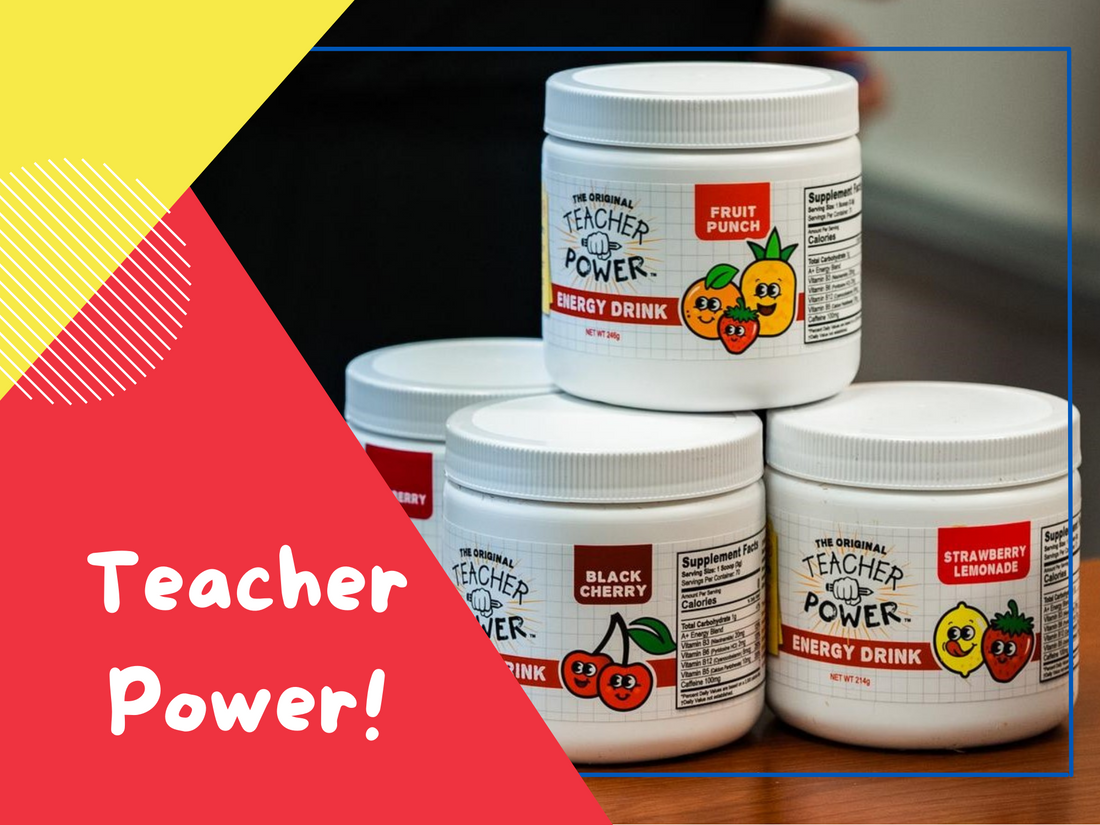The Original Teacher Power Energy Drink
Is the Most Cost-Effective Best Healthy Energy Drink On the Market
Did you become a teacher to magically hype young minds to care more and work harder to understand how the world works around them? Do you sometimes feel like you lack the energy you need to be the dynamic teacher you know you are?
You take good care of yourself. You try to exercise regularly, eat a balanced diet, and get a full night’s sleep. However, do you find somedays your body feels lethargic and your mind can’t seem to focus? Are you reaching for one more cup of coffee in the morning? An energy drink might better fit your lifestyle to bring out your best, dynamic teaching.

With so many energy drinks on the market, which one makes the most sense for your teaching style and your teaching paycheck?
Active Ingredients in Energy Drinks to Boost Energy Levels
Caffeine
Caffeine boosts a person’s energy by disrupting the binding capability of adenosine, a central nervous system depressant. As part of the body’s normal clockwork, adenosine levels rise with each waking hour. When caffeine interrupts adenosine binding capability, adrenaline, serotonin, and dopamine can take over to wake up and energize the brain.
The amount of caffeine required to stimulate a person’s brain depends upon the person’s caffeine tolerance built up over time. A regular cup of coffee contains roughly 100 milligrams of caffeine. Up to 400 mg of caffeine a day is considered safe for normal adults and up to 200 mg for pregnant women.

Negative side-effects of regular caffeine use include upset stomach or heartburn and rapid heartbeat. Caffeine withdrawal symptoms include headache, irritability, drowsiness, and anxiety.
Taurine
Taurine is an amino sulfonic acid found abundantly in the brain, eyes, muscles, kidneys, and other organs. Our body naturally obtains taurine from meat, fish, and dairy and manufactures it from various other amino acids. Taurine is shown to be directly involved in neurotransmission and neurogenesis throughout adulthood.
However, the Mayo Clinic reports research findings are controversial concerning the benefits of taurine combined with caffeine in energy drinks to improve mental performance.
B-Vitamins
All eight of the B Vitamins play an essential role in promoting energy metabolism and brain function. A deficiency in any one of the B Vitamins can cause excessive fatigue, mood changes, or cognitive decline.
Energy Drinks on the Market
All ingredients, costs, and reviews were obtained on Amazon.com.
- Matchabar Hustle is a carbonated drink containing Japanese ceremonial grade matcha. Matcha is finely crushed green tea leaves.
- Active Energy Ingredients: 120 mg of caffeine
- Pros
- All 9 ingredients are organic.
- Sweetened with fruit juices.
- Cons
- Though there are no added sugars. The fruit juice adds 4 grams of sugar.
- Prohibitive Cost: A 12 pack costs $34.97 or $2.97 per serving.
- Taste: A reviewer says it tastes like earthy-flavored sparkling water.
- Teaching Convenience: Comes in a flashy 12 oz aluminum can meant to be served cold.
- Yerba Mate is an herbal tea made from the Ilex paraguariensis plant native to Argentina.
- Active Energy Ingredients: 85 mg of caffeine, vitamins B1, B2, B3, and B5
- Pros
- Only 1 organic ingredient.
- Cost Effective: $14.99/17.6 oz bag or $0.08 per 6 oz cup.
- Cons
- Taste: Strong Earthy Flavor
- Teaching Convenience: To enjoy this tea, you get to brew and strain it yourself just like if you prefer coffee made from green coffee beans.
- Pre-brewed Yerba Mate, both carbonated and non-carbonated, is available in cans on Amazon.com. The cost per individual serving ranges from $2.79-$1.75.
- Red Bull is one of the first carbonated, non-organic energy drinks to hit the US market in the mid-1990s. It was developed in the mid-1980s by Dietrich Mateschitz, an Australian entrepreneur.
- Active Energy Ingredients: 80 mg of caffeine, taurine, vitamins B3, B5, B6, and B12, and 39 grams of sugar.
- Pros
- Available in many flavors.
- Available sugar-free options.
- Cons
- Highly processed with over 17 ingredients including artificial colors and flavors.
- The original Red Bull has a high sugar content.
- High Cost: A six-pack costs $11.88 or $1.98 per serving.
- Teaching Convenience: Comes in recognized can and is meant to be served cold.
- 5-Hour Energy Shots were developed in 2004 by Manoj Bhargava. Bhargava wanted an energy boost in a shot glass made without sugar or unknown stimulants. Though they seek general appeal, 5-hour Energy is also marketed as a pre-workout sports drink to improve athletic performance.
- Active Energy Ingredients: The regular strength contains 200 mg of caffeine; the extra strength has 230 mg of caffeine. Additional active energy ingredients include taurine, Vitamins B3, B6, and B12 plus numerous chemicals 5-hour energy (https://5hourenergy.com/faq/) says promote energy. These chemicals include Glucuronic Acid, Malic Acid, L-Tyrosine, L-Phenylalanine, and Citicoline.
- Pros
- Available in many flavors.
- Cons
- Highly processed with over 15 ingredients including artificial flavors.
- High Cost: A 24-pack of regular strength costs $47.50 or $1.98 per serving.
- Teaching Convenience: It comes in a convenient 1.93 oz bottle for a quick shot of stimulation.
- Teacher Power Energy Drink is new on the market. It was developed as an economical and healthy way for teachers to stay energized during the school day.
- Active Ingredients: 100 mg of caffeine, Vitamins B3, B5, B6, and B12.
- Pros
- Three fun flavors including black cherry, fruit punch, and strawberry lemonade.
- Contains only 7-9 ingredients based on the flavor.
- Cost: A container with 70 servings costs $27.99 for $0.40 per serving. You can purchase Teacher Power Energy Drink on our website (https://teacherpower.org/collections/all) for $25.00.
- Cons
- Powder mixes can be messy. We suggest using a small funnel. You can hack this by using a paper to curl around the opening of a water bottle, using the curled paper as a makeshift funnel.
- Teaching Convenience: The powder mix is perfect for use in a reusable water bottle. You can mix up as much or as little of the energy-boosting formula as you want or need for your dynamic teaching day.
The Benefits of Teacher Power Energy Drink
Are you tired of being tied to the coffee pot to get you going in the morning after a long night grading papers? Are you concerned about having to down a caffeinated soda mid-afternoon to face your energetic students? Teacher Power is here to give you the right amount of caffeine and B Vitamins for a healthy energy boost at an affordable cost.
Teacher Power Energy Drink can be conveniently purchased on Amazon or through our website.

Thank you for being a teacher dedicated to the future of our world as you teach, inspire, and direct the children of today. We love teachers. Check out our blog full of free printables, book reviews, teaching tips and helps, and personal care articles.
There is a dynamic teacher inside of you! That’s why you wanted to become a teacher in the first place. Let Teacher Power Energy Drink help keep your dynamic teaching going the entire school day.
Article by Miss Jae
Sources:
“Compounds in Coffee.” Coffee & Health. https://www.coffeeandhealth.org/topic-overview/compounds-in-coffee-2/
“What is Yerba Mate.” Yerba Mate Argentina. https://yerbamateargentina.org.ar/en/yerba-mate/que-es-la-yerba-mate/
Petre, Alina. “8 Benefits of Yerba Mate (Backed by Science).” Healthline. 2018. https://www.healthline.com/nutrition/8-benefits-of-yerba-mate
“Major Components and Health Benefits of Green Tea.” All About Green Tea. https://www.itoen-global.com/allabout_greentea/components_benefit.html
Hill, Ansley. “What is Green Coffee? All You Need to Know.” Healthline. 2019. https://www.healthline.com/nutrition/green-coffee#what-it-is
Mandal, Ananya. “What is Adenosine?” News Medical Life Sciences. https://www.news-medical.net/health/What-is-Adenosine.aspx
Patel, Kamal. “Caffeine.” Examine.com. 2019. https://examine.com/supplements/caffeine/
Pietrangelo, Ann. “The Effects of Caffeine on Your Body.” Healthline. 2018. https://www.healthline.com/health/caffeine-effects-on-body
Ripps, Harris and Shen, Wen. “Review: Taurine: A Very Essential Amino Acid.” Molecular Vision. 2012. https://www.ncbi.nlm.nih.gov/pmc/articles/PMC3501277/
Zeratsky, Katherine. “Taurine is an Ingredient in Many Energy Drinks. Is Taurine Safe?” Mayo Clinic. https://www.mayoclinic.org/healthy-lifestyle/nutrition-and-healthy-eating/expert-answers/taurine/faq-20058177
Kennedy, David O. “B Vitamins and the Brain: Mechanisms, Dose, and Efficacy- A Review.” MDPI Nutrients. 2016. https://www.ncbi.nlm.nih.gov/pmc/articles/PMC4772032/
“FAQ.” 5-Hour Energy Website. https://5hourenergy.com/faq/
The content of Teacher Power’s website is for information only, not advice or guarantee of outcome. Information is gathered and shared from reputable sources; however, Teacher Power is not responsible for errors or omissions in reporting or explanation. No individuals, including those taking Teacher Power products, should use the information, resources or tools contained within to self-diagnosis or self-treat any health-related condition. Teacher Power gives no assurance or warranty regarding the accuracy, timeliness or applicability of the content.

